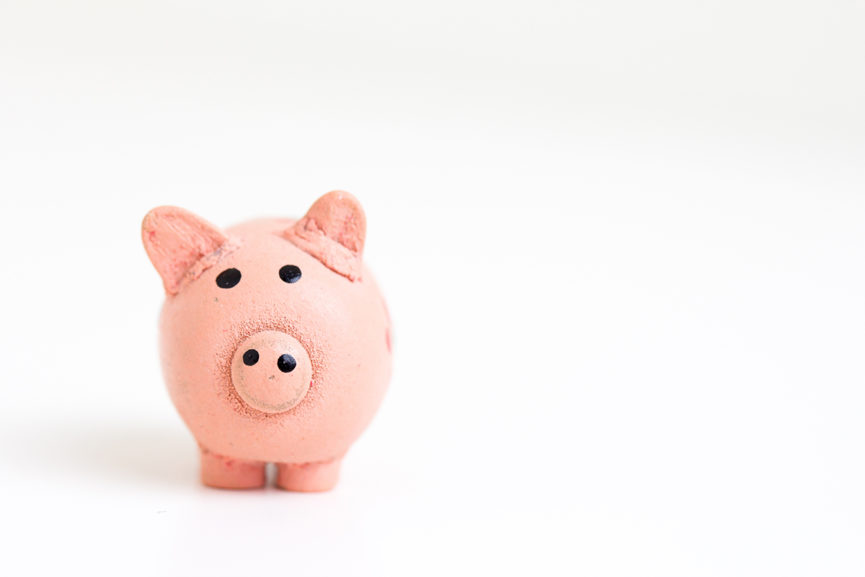Photo by Fabian Blank on Unsplash
Bad money habits are like old clothes we don’t use anymore but still keep inside our closets. They take up space and accumulate dust and molds. But instead of disposing of old clothes to clear up space, we often make the mistake of buying new closets to store our new clothes, resulting in a more cluttered house. Likewise, bad money habits consume much of our time and resources, and the only solution is to dispose of them. This 2018, it’s time to say goodbye to these bad money habits and say hello to healthy practices that can help you achieve financial freedom.
Say goodbye to extravagance and hello to simplicity. Many today maintain a lavish lifestyle to impress people. But impressing others is never ending. It only wastes your resources on standards you can’t really afford. It makes you spend lots of money at the expense of family time, character, friendship, values, and faith. It’s time to let extravagance go.
You can achieve financial freedom if you start living below your means. Before buying, make it a habit to distinguish needs from wants. Needs are those you can’t live without. Wants, on the other hand, only satisfy our pleasure and preferences. With simplicity, you’ll be surprised that you don’t really need to have an extravagant life in order to be happy.
Say goodbye to consumerism and hello to saving. This consumer-driven world determines the value of people by the number of items they can buy. Consumerism conditions our minds to spend, spend, and spend, even if what we buy does not contribute to our welfare. This wastes a lot of our resources and keeps us farther away from achieving our financial goals. It’s time to let consumerism go.
Instead of succumbing to consumerism, develop the habit of saving. Saving is setting aside a specific amount of money for future use. Ants store food during summer so they can eat during the rainy season. Similarly, make it a practice to subtract at least 20% from your income every payday for savings, so when there’s an emergency or a sudden need to be met, you have money to spare.
Say goodbye to impulse buying and hello to budgeting. Impulse buying is uncontrolled spending. It makes you spend on items you don’t really need to the point that you have no money left to fund important expenditures. It’s time to let impulse buying go.
Make it a habit to use a budget list for all expenditures. Suppose you’ve already set aside 20% for saving. The remaining 80% is your spendable income. It should be budgeted into two kinds of expenses: non-optional and optional. Non-optional expenses are fixed costs your family needs to sustain regular household operations (e.g. mortgage, electricity, water, insurance and loan payments, tuition, transportation, and food). Optional expenses are variable costs which are not necessarily needed for operations but can improve the family bond (e.g. entertainment, vacation, restaurant date with your spouse). Expenses will vary depending on your family’s context. What’s important is you start itemizing and prioritizing expenditures within your spendable income.
Say goodbye to buying on credit and hello to debt reduction. We live at a time when almost everything can be bought on credit. You can even buy items today and begin paying it off in six months! But buying on credit means you either lack contentment or lack the discipline to save and budget money for your needs and wants. It means you want to enjoy something now even if you can’t afford it yet. What about offers with zero percent interest? If you do the math, the discount they’re willing to give if you pay in cash is actually the interest you are going to pay for if you avail the zero percent interest offer. Unfortunately, many undisciplined borrowers end up working just to pay off their credit card interest. Of course, using a credit card can be helpful during emergencies and life-and-death situations. But, otherwise, buying on credit is a practice you have to let go.
Debts are part of your non-discretionary expenses. This year, decide if you should start with smallest amounts until you develop the discipline to pay larger debts. Or, if you have the money, you can choose to pay all your debts at once. You’ll be surprised with the amount of cash you will free up once you are no longer in debt. Now, paying off one debt doesn’t mean you can now incur another. To become financially free, commit to use cash in all your transactions. Whether it’s hard cash or your debit card, cash is king. Using cash keeps you within the lifestyle you can really afford to have.
You can’t achieve financial freedom unless you let bad money habits go. Yes, it will not be a walk in the park; but it can be done. Start this year right by committing to a simple lifestyle. Save 20% of your income this coming payday, and budget the remaining money. Start paying off your debts, make sure you don’t incur another debt, and always use cash for transactions. Do these every day, until it becomes a habit.

Dennis A. Dawal is a Registered Financial Planner. He is a speaker, lecturer, and writer on personal finance and retirement planning.
Related Posts
-
Setting Your Family Vision for 2018
By now, companies would be ready to start the year, full of optimistic and growth-maximizing…
-
What Factors Contribute to Depression
What causes depression? Lillian Ng Gui, psychologist and Christian counselor, identifies more possible contributors and…
-
Waiting
Common to all human beings are things people constantly seek after, wait for, and long…




